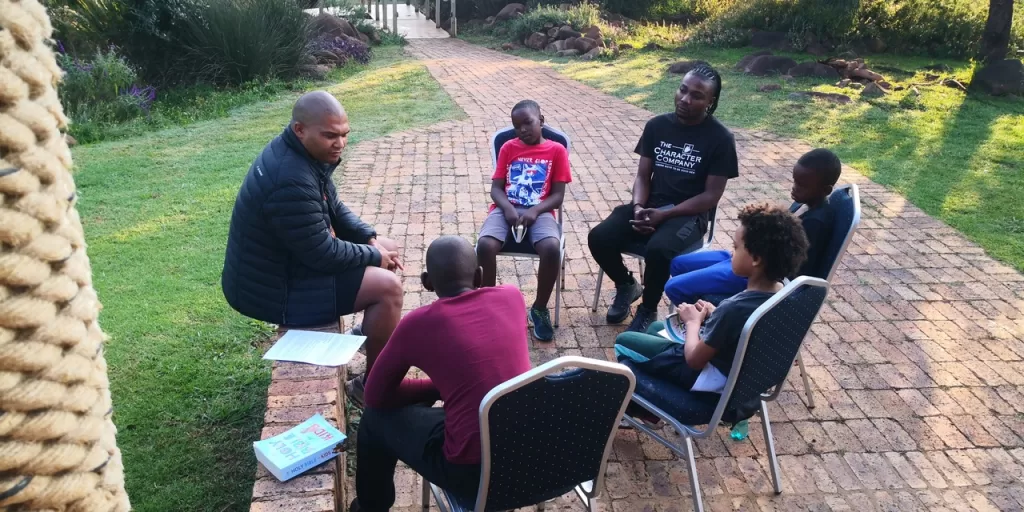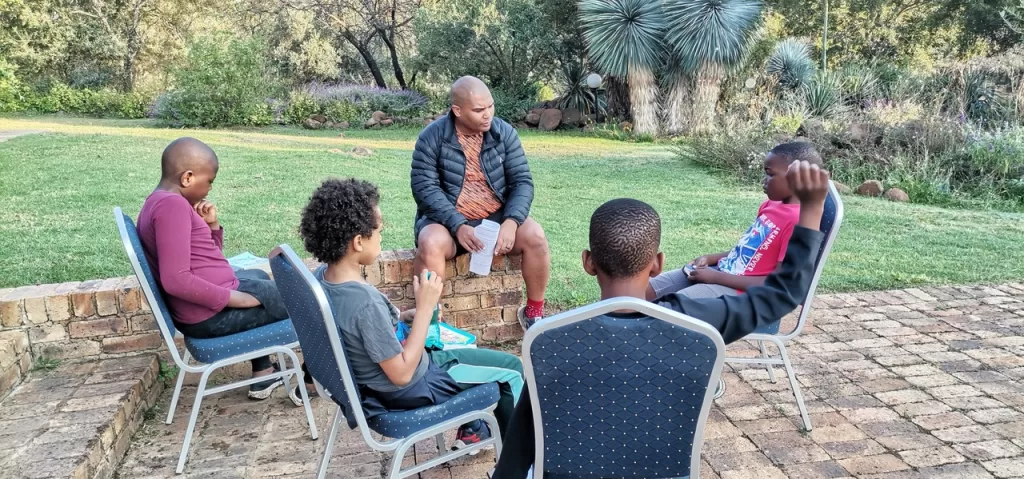Traumatic experiences can disrupt a child’s sense of safety, trust, and emotional regulation, often leading to long-term mental health effects. These are a wide range of events or situations that overwhelm a child’s ability to cope emotionally and psychologically. If these traumas are not addressed with appropriate, timely intervention and support, it can lead to a lifetime of mental health, behavioural and social challenges.
We tend to think of trauma in terms of out of the ordinary, acute events such as witnessing an outburst of violence, experiencing a surprising abuse or being hurt in an unforeseen accident. However, some children’s situations in life can be chronically traumatic.
In South Africa, 70% of children are growing up in single-parent homes and it is estimated that four out of five boys with absent fathers don’t have even one other consistent, positive male role model in their lives. Jaco van Schalkwyk, the Founder and CEO of The Character Company (TCC), a non-profit organisation working with fatherless boys, says, “We must understand trauma is not just physical hurt. Trauma can also be created by our experiences in life that are not necessarily violent or abusive. The lack of a positive male role model is such a devastating experience for a young boy. It’s a trauma that goes much deeper than sadness at missing out on playing rugby with your dad.
“A boy’s identity and sense of self is positively shaped by having a father or male caregiver who pays attention, makes time and serves as a guide for him as he grows. Such a boy needs no proof, he just knows that he is ‘good enough’ and that he is someone who his father believes is worth standing up for. By contrast, a boy with an absent father constantly wonders: ‘What is wrong with me?’ He is constantly churning about and seeking answers as to why he is not ‘good enough’ and why he isn’t worth making time for. Psychologically, this is an ongoing, traumatic hurt that impacts on boys’ development, behaviour and social relationships. Without intervention, it shapes the man he will grow up to be.”

Research has shown that boys growing up without positive male role models are vulnerable to depression, social withdrawal, suicide ideation, substance abuse, aggression, both poor performance and over-performance, as well as truancy and bullying.
Dr Joan van Niekerk, Child Right and Protection consultant at Jelly Beanz, an organisation helping children who have experienced abuse and neglect says, “The absence of fathers who are positive and responsible role models is a form of neglect, and it has enormous impact on both boys and girls. The impact on boys results in a lack of guidance on social relationships, and on how to use their physical strength to protect others and not to harm and or hurt. Boys with absent fathers and without positive role models then take gender role guidance from other sources such as television, social media and, if they have access to them, gang members. This may perpetuate a cycle of violence in relationships and may have an impact in social situations if there is a perceived threat or a possible loss of face.” Jelly Beanz has recently co-hosted the Child Trauma Conference 2024 with the theme “Healing Generations”that focuses on the impact of trauma on current and future generations and finding creative and effective measures to interrupt cycles of abuse and neglect.

Healing the trauma of fatherlessness and breaking the generational cycles of absent fathers, is a long-term objective for TCC and its volunteer mentors. Jaco says, “Our programme of consistent mentoring and healthy, outdoor activities is a model of social fatherhood that we are implementing so that boys with absent fathers have the much-needed opportunity to engage with male role models who are intentional, committed and accountable to them. TCC’s five values – respect, honesty, self-discipline, courage and kindness provide the framework for how to grow into a good man, and the roadmap for how we engage with each other in our mentorship groups. We provide safe places for boys to talk about their feelings and develop emotional intelligence and empathy.

“TCC mentors make sure that the boys are seen and heard as their authentic selves. This is not just to validate them but to lay the essential foundation for them to develop a healthy self-esteem and embody a positive masculinity. Identity flows out of the development of character. This is not a quick fix, but a committed, long-term process. While the extent of fatherlessness in our country seems overwhelming, there’s so much opportunity for South African men to become part of the solution and contribute to healing the generation now, and those to come. To walk this journey over time with a boy is enriching for our mentors, and we hope to see many more South African men step up to the challenge of becoming intentional, committed and accountable social fathers.”

Learn more about The Character Company
Find out how to be a TCC mentor here





























